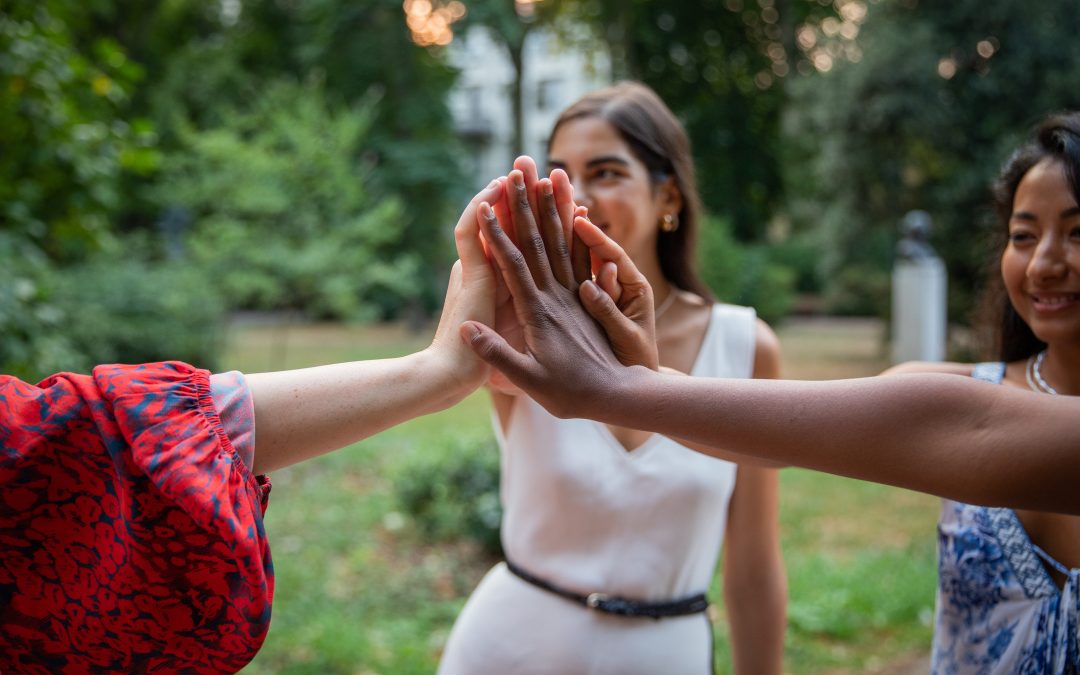The Holiday season is right around the corner, and for many this means spending time with family and friends to celebrate and reflect on the year we have had. While for many, the holidays are a happy and exciting time, I think it is important to recognize that for many others, it is not always warm and fuzzy. Anytime we find ourselves gathered with large groups of friends or family; it is very possible and highly likely that conflict will occur. The holidays also bring to light any conflict that maybe we have been dealing with throughout the year when the family comes together to sit down at the table. The bottom line is many of us will deal with some type of conflict within our families in the next couple of months. This brings us to this month’s protective factor. A protective factor is a factor present in a child’s life that makes it less likely they will use substances. The opportunity to resolve conflict in family is a protective factor that can potentially protect our youth against the harms of substance use.
Let’s start with the why. Why is the opportunity to resolve family conflict so important? There are many reasons why this is important, but perhaps the most influential reason is that family (especially during adolescence) serves as a child’s most consistent and meaningful support system. We know that having strong bonds in the family is a huge protective factor against substance use. These strong bonds are associated with better communication, learning more skills, and developing healthy relationships. When there is conflict in the family, this could lead to the weakening of family bonds, which over time could become a risk factor for substance use. Another reason to consider the importance of resolving family conflict is the development of conflict resolution skills. Anytime humans are living together there is bound to be conflict at some point. When a child gets mad at their friend, they may choose to stop spending time with that friend, however when a child gets mad at their sibling it is much more difficult for them to stop spending time together. So, it is even more important that children learn to resolve conflict within their families to foster a peaceful and safe home environment.
Conflict resolution is a skill that must be learned just like riding a bike or doing the laundry. This is something that as parents we must explicitly teach and model for our children, and for most this is not something children are just born knowing how to do. Teaching children how to resolve conflicts will take a lot of practice, but it may begin with conversations in the home. Teaching our children to talk about their feelings and being able to express themselves are fundamental skills when it comes to resolving conflicts, while also teaching our children to be empathetic and consider the feelings of others. When your child finds themselves in a conflict with a friend or sibling, talk to them about what they can say or how they might try to make it better.
A couple of things to keep in mind.. The biggest way we can teach our children to resolve conflict is by modeling the behavior we want them to learn. Your children are going to see you have conflict with your spouse, family members, or even a stranger in public. We need to be mindful of how we handle these situations and remember that we are teaching our children through our own actions. Also, it is important that we teach our children to recognize that they are only responsible for their own words and actions. I am sure you can think of a time when you genuinely tried to resolve a conflict but were unable to do so because the other person simply wasn’t ready or didn’t want to. This happens, and in these situations, we don’t want our children to be blaming themselves or stressing about something they can’t change. We need to teach our children to do the best they can but learn to recognize when a conflict isn’t going to be resolved and walk away from the situation before things escalate into an unhealthy situation.
In conclusion, I hope that this holiday season you will keep in mind the importance of conflict resolution in your family and be intentional about modeling healthy ways to resolve conflict. I also hope that you will teach your children the importance of resolving conflicts and give them opportunities to practice resolving conflicts on their own.

